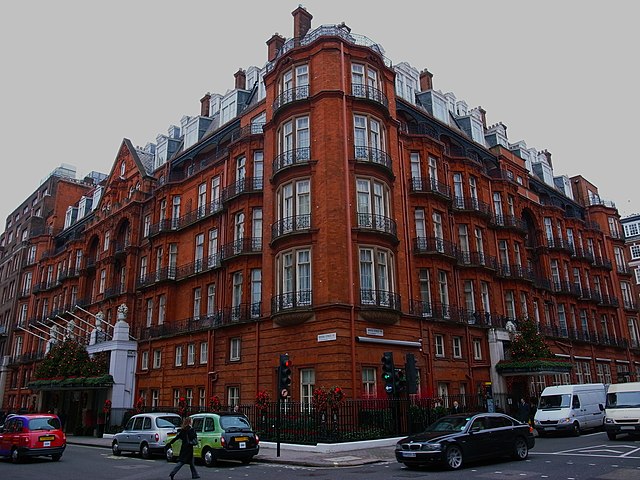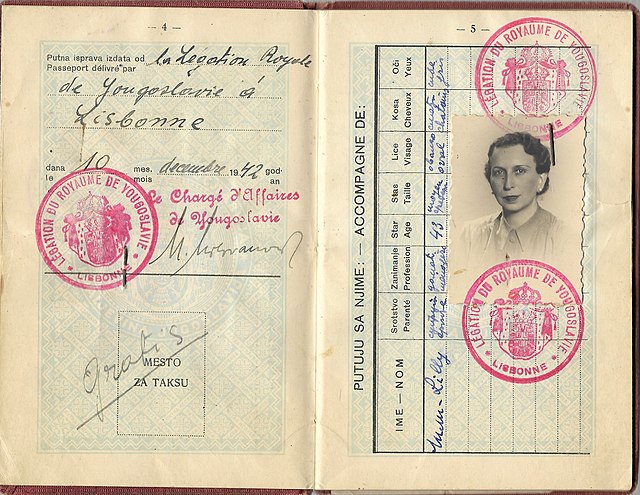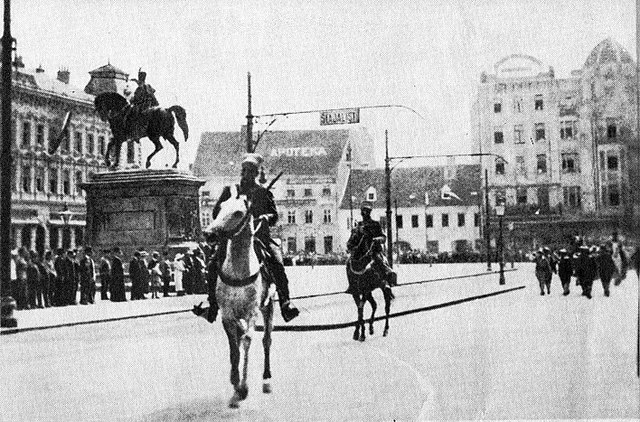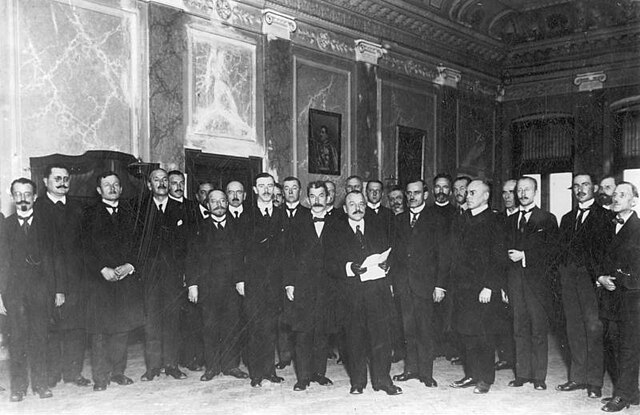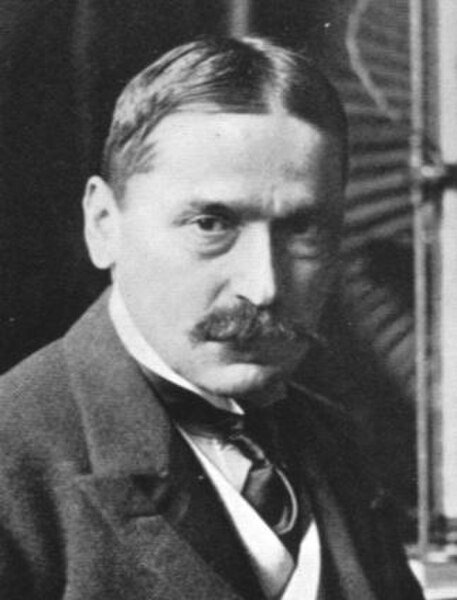Yugoslav government-in-exile
The Government of the Kingdom of Yugoslavia in Exile was an official government-in-exile of Yugoslavia, headed by King Peter II. It evacuated from Belgrade in April 1941, after the Axis invasion of the country, and went first to Greece, then to Palestine, then to Egypt, and finally, in June 1941, to the United Kingdom. Hence, it is also referred to as the "Government in London".
Claridge's Hotel in London, where the Yugoslav government-in-exile was based during the war.
King Peter II conferring with the Prime Minister of the Yugoslav Government in Exile, Ivan Šubašić.
1942 issued government in exile passport by Chargé d'affaires in Portugal Milutin Milovanovic.
The Kingdom of Yugoslavia was a country in Southeast and Central Europe that existed from 1918 until 1941. From 1918 to 1929, it was officially called the Kingdom of Serbs, Croats, and Slovenes, but the term "Yugoslavia" was its colloquial name due to its origins. The official name of the state was changed to "Kingdom of Yugoslavia" by King Alexander I on 3 October 1929.
Celebrations in Zagreb during the formation of the National Council of the State of Slovenes, Croats and Serbs, October 1918
Serbian Army in Zagreb's Ban Jelačić Square in 1918
Delegation of the National Council of the State of Slovenes, Croats and Serbs led by Ante Pavelić reading the address in front of regent Alexander, 1 December 1918
Mihajlo Pupin, Serbian physicist and physical chemist. He influenced the final decisions of the Paris Peace Conference when the borders of the Kingdom were drawn.

